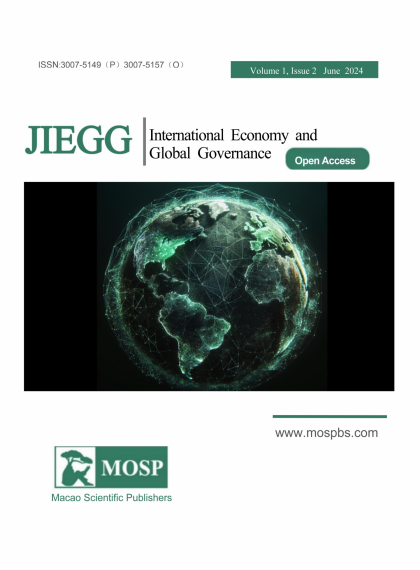-
Atube, F., Malinga, G. M., Nyeko, M., Okello, D. M., Alarakol, S. P., & Okello-Uma, I. (2021). Determinants of smallholder farmers’ adaptation strategies to the effects of climate change: Evidence from northern Uganda. Agriculture & Food Security, 10(1), 6. https://doi.org/10.1186/s40066-020-00279-1
-
Bamanyaki, P., & Aogon, G. (2020). Unpacking impacts of climate change and variability on agriculture, food security and incomes in Northern Uganda: A gender standpoint. [online] Reliefweb.int. Available at: https://reliefweb.int/sites/reliefweb.int/files/resources/PACCA_InfoNote_June2020.pdf [Accessed June 2020].
-
Climate ADAPT. (2022). Monitoring, modelling, and forecasting systems—English. Retrieved November 23, 2022, from https://climate-adapt.eea.europa.eu/en/metadata/adaptation-options/monitoring-modelling-and-forecasting-systems
-
Data for Uganda Low inFaocome | Data. (2022). Retrieved December 8, 2022, from
-
Eriksen, S. H., Cramer, L. K., Vetrhus, I., & Thornton, P. (2019). Can Climate Interventions Open Up Space for Transformation? Examining the Case of Climate-Smart Agriculture (CSA) in Uganda. Frontiers in Sustainable Food Systems, 3, 111. https://doi.org/10.3389/fsufs.2019.00111
-
FAO. (2022). https://landportal.org/ru/node/102728
-
FAO success stories on climate-smart agriculture. (2010).
-
Hart, C. (2018). Doing a Literature Review: Releasing the Research Imagination. SAGE.
-
Kath, J., Byrareddy, V., Craparo, A., Nguyen-Huy, T., Mushtaq, S., Cao, L., & Bossolasco, L. (2020). Not so robust: Robusta coffee production is highly sensitive to temperature. Global Change Biology, 26(6), 3677-3688.
-
Kikoyo, D. A., & Nobert, J. (2016). Assessment of impact of climate change and adaptation strategies on maize production in Uganda. Physics and Chemistry of the Earth, Parts A/B/C, 93, 37–45. https://doi.org/10.1016/j.pce.2015.09.005
-
Lay, J., Nolte, K., & Sipangule, K. (2018). Large-Scale Farms and Smallholders: Evidence from Zambia.
-
Bank, A. D. (2020, March 8). Access to Finance: Why Aren’t Women Leaning In? [Text]. African Development Bank - Building today a better Africa tomorrow; African Development Bank Group. https://www.afdb.org/en/news-and-events/access-finance-why-arent-women-leaning-34645
-
Learn facts about Uganda Poverty and Development. (n.d.). Opportunity International. Retrieved November 25, 2022, from https://opportunity.org/our-impact/where-we-work/uganda-facts-about-poverty
-
Mugeere, A., Barford, A., & Magimbi, P. (2021). Climate Change and Young People in Uganda: A Literature Review. The Journal of Environment & Development, 30(4), 344–368. https://doi.org/10.1177/10704965211047159
-
Mulugeta, G., & Simelane, T. (Eds.). (2016). Natural and Human-Induced Hazards and Disasters in Africa. Africa Institute of South Africa. https://doi.org/10.2307/j.ctvh8qzhx
-
Olaka, L. A., Ogutu, J. O., Said, M. Y., & Oludhe, C. (2019). Projected Climatic and Hydrologic Changes to Lake Victoria Basin Rivers under Three RCP Emission Scenarios for 2015–2100 and Impacts on the Water Sector. Water, 11(7), Article 7. https://doi.org/10.3390/w11071449
-
Phillip, K. (2017, April 4). Poverty and Education in East Africa: Breaking the Cycle. Habitat for Humanity GB. https://www.habitatforhumanity.org.uk/blog/2017/04/poverty-and-education-east-africa/
-
Positive climate feedback—Energy Education. (2022). Retrieved November 24, 2022, from https://energyeducation.ca/encyclopedia/Positive_climate_feedback
-
Recha, J., Kimeli, P., Atakos, V., Radeny, M., & Mungai, C. (2017). Stories of Success: Climate-Smart Villages in East Africa. [online] Cgspace.cgiar.org. Available at: https://cgspace.cgiar.org/handle/10568/81030
-
Schubert (2015). Crops under a changing climate: What are the impacts in Africa? (2015, June 17). https://ccafs.cgiar.org/news/crops-under-changing-climate-what-are-impacts-africa
-
Snyder, H. (2019). Literature review as a research methodology: An overview and guidelines. Journal of Business Research, 104, 333–339. https://doi.org/10.1016/j.jbusres.2019.07.039
-
Tuheirwe-Mukasa, D., Haveraaen, M., Sansa-Otim, J., Kanagwa, B., & Mujuni, G. R. (2019). The Efficacy of ICT in Weather Forecast Information Dissemination: Evidence from Farming Communities in Mbale and Rakai Districts, Uganda. In Y. Bamutaze, S. Kyamanywa, B. R. Singh, G. Nabanoga, & R. Lal (Eds.), Agriculture and Ecosystem Resilience in Sub Saharan Africa: Livelihood Pathways Under Changing Climate (pp. 571–593). Springer International Publishing. https://doi.org/10.1007/978-3-030-12974-3_25
-
Twinomuhangi, R., Sseviiri, H., Mulinde, C., Mukwaya, P. I., Nimusiima, A., & Kato, A. M. (2021). Perceptions and vulnerability to climate change among the urban poor in Kampala City, Uganda. Regional Environmental Change, 21(2), 39. https://doi.org/10.1007/s10113-021-01771-5
-
U-Report. (2015). Retrieved December 8, 2022, from https://www.unicef.org/uganda/what-we-do/u-report
-
Uganda: Country data and statistics. (n.d.). Worlddata.Info. Retrieved November 24, 2022, from https://www.worlddata.info/africa/uganda/index.php
-
UN. (2018). Uganda - Main Details Status and trends of biodiversity including benefits from biodiversity and ecosystem services. https://www.cbd.int/countries/profile/?country=ug
-
World Bank Climate Change Knowledge Portal. (2021). Retrieved September 12, 2022, from https://climateknowledgeportal.worldbank.org/
-
Worlddata. (2022). Uganda: Country data and statistics. Retrieved November 24, 2022, from https://www.worlddata.info/africa/uganda/index.php
-
Wu, B. (2020). Chapter 10 - How small farmers enter the big market? A case study of agricultural cooperatives in China. In M. Altman, A. Jensen, A. Kurimoto, R. Tulus, Y. Dongre, & S. Jang (Eds.), Waking the Asian Pacific Co-Operative Potential (pp. 113–124). Academic Press. https://doi.org/10.1016/B978-0-12-816666-6.00010-0
-
Yunana, D. A., Shittu, A. A., Ayuba, S., Bassah, E. J., & Joshua, W. K. (2017). Climate change and lake water resources in Sub-Saharan Africa: Case study of lake Chad and Lake Victoria. Nigerian Journal of Technology, 36(2), 648. https://doi.org/10.4314/njt.v36i2.42
-
Zhang, D. (2018). The Concept of ‘Community of Common Destiny’ in China’s Diplomacy: Meaning, Motives and Implications. Asia & the Pacific Policy Studies, 5(2), 196–207. https://doi.org/10.1002/app5.231

